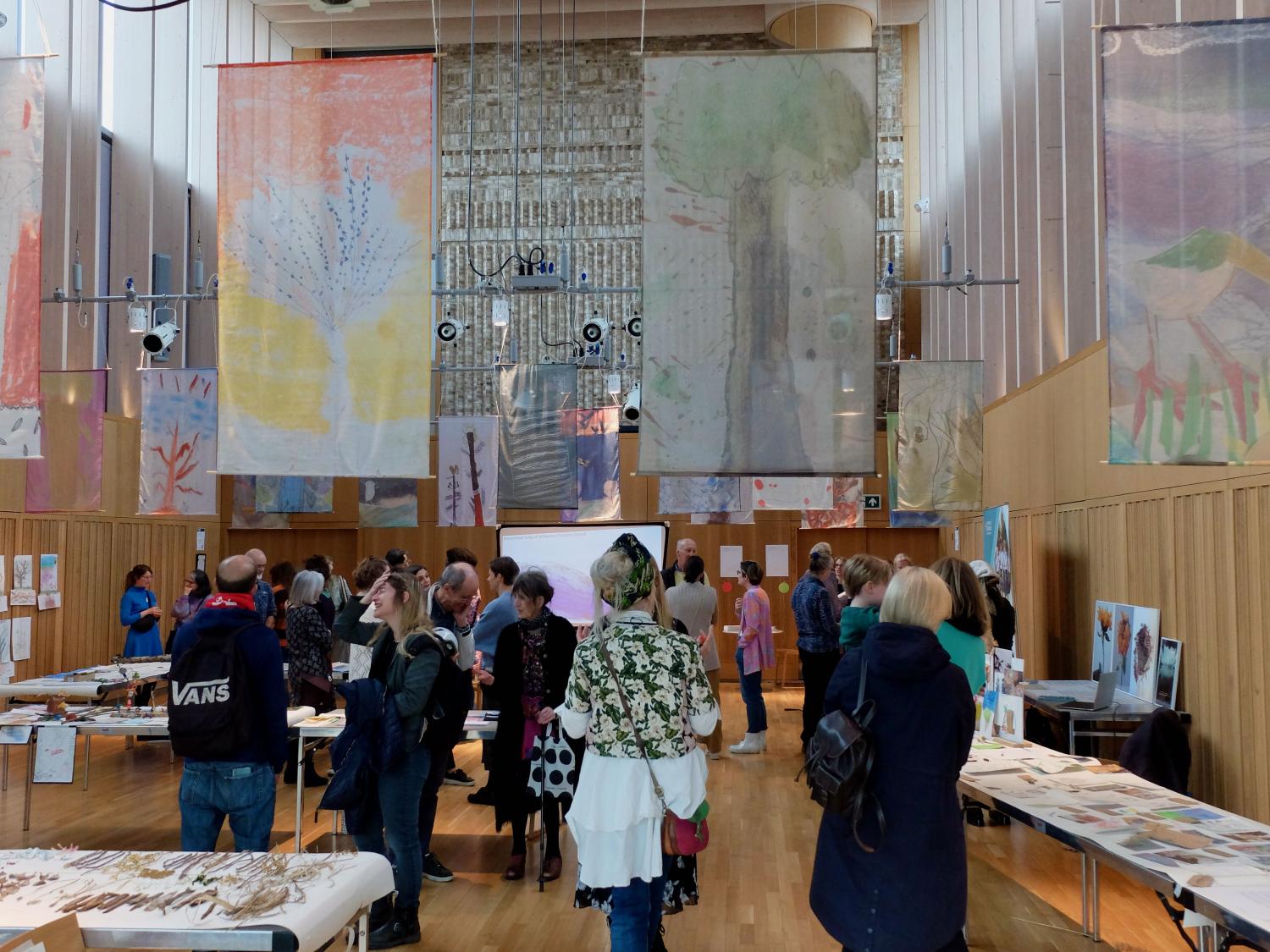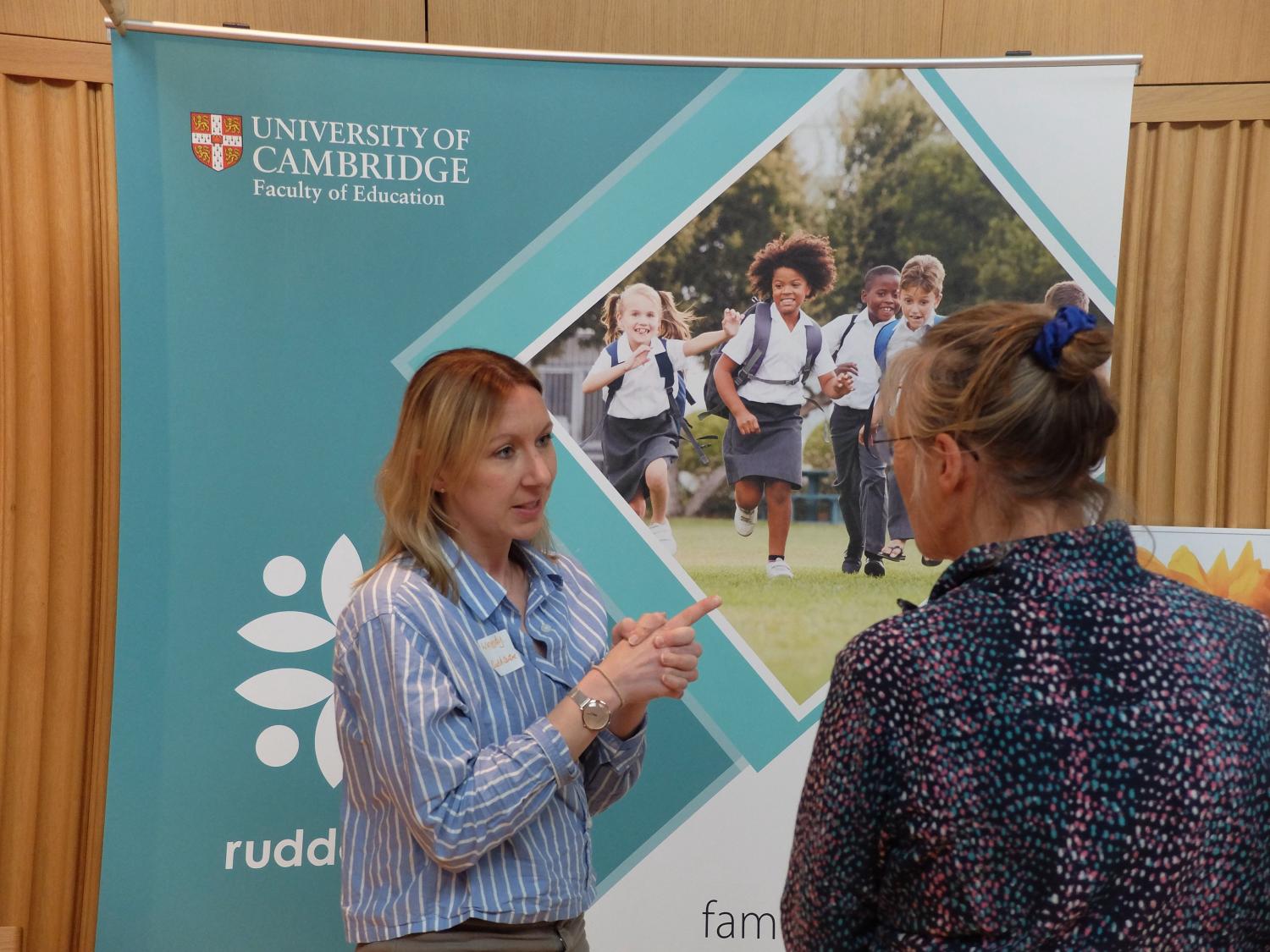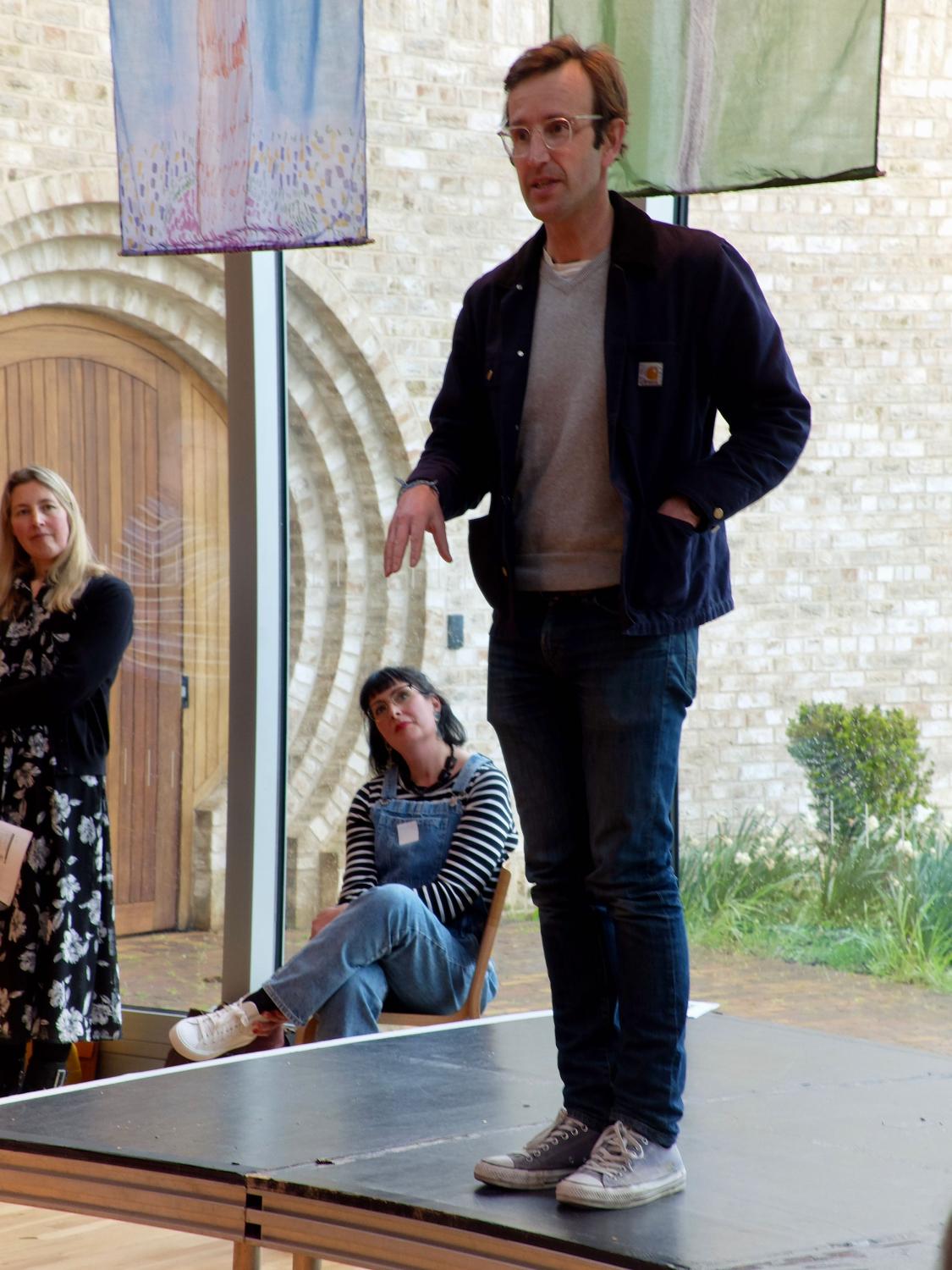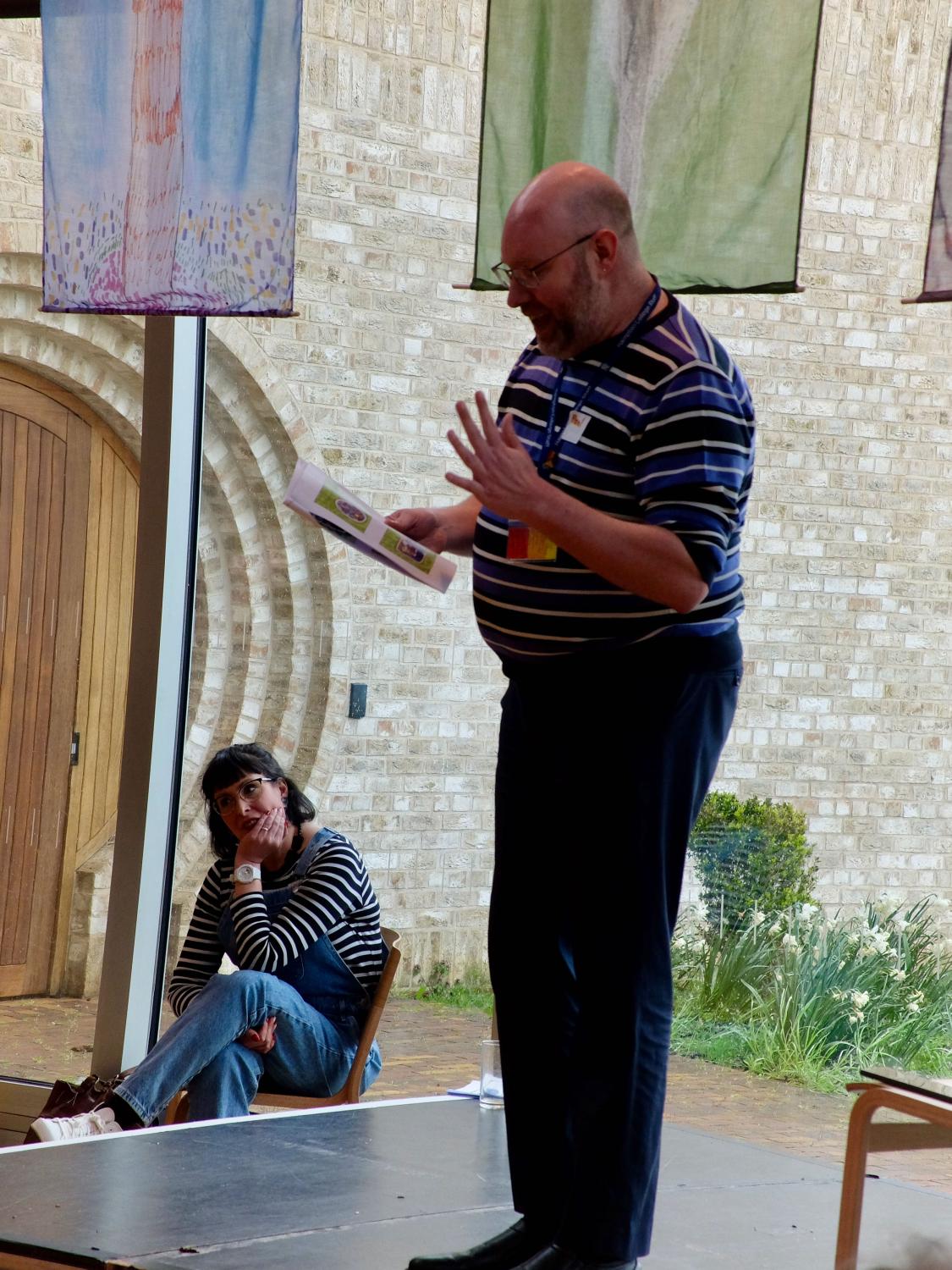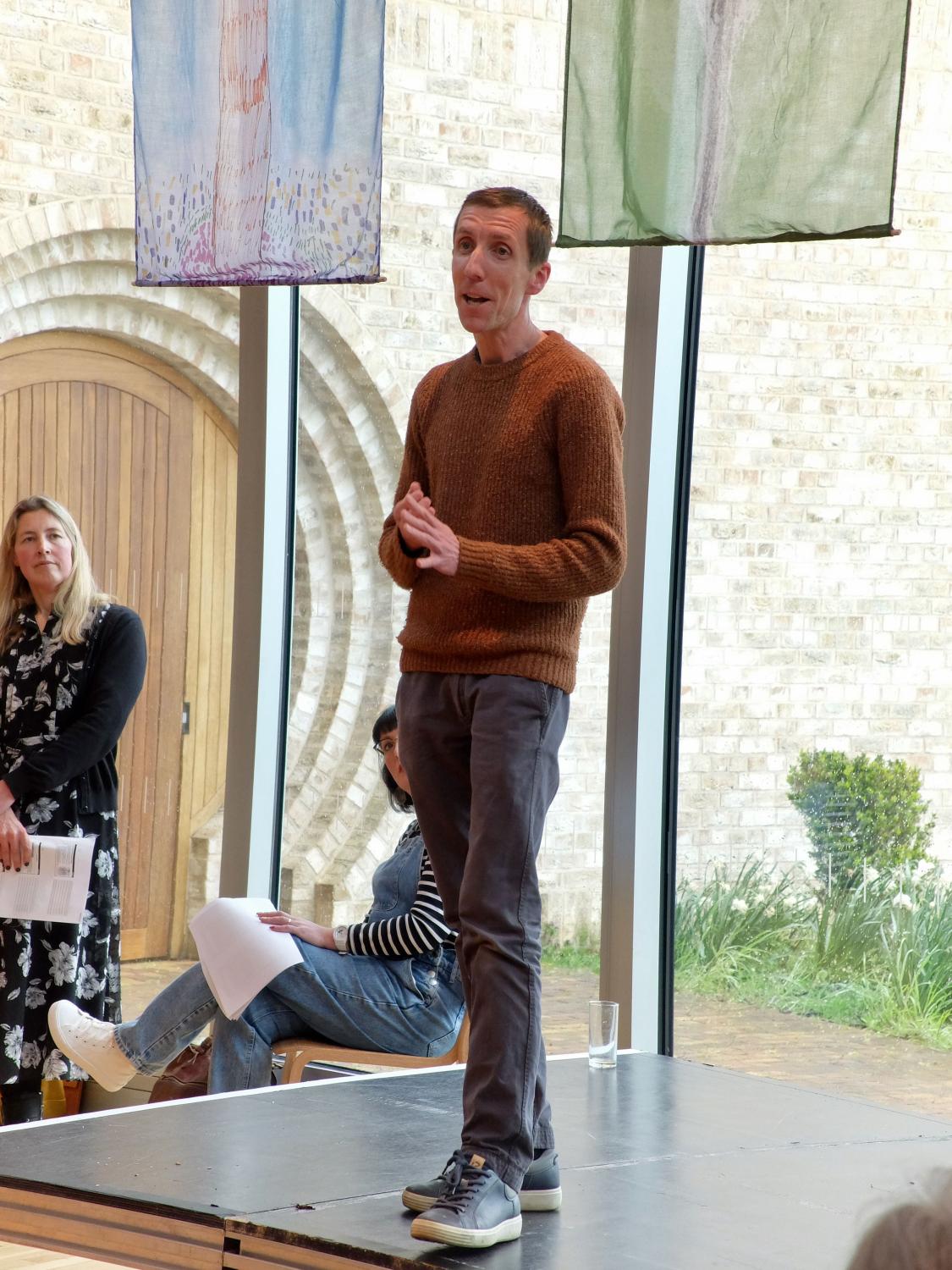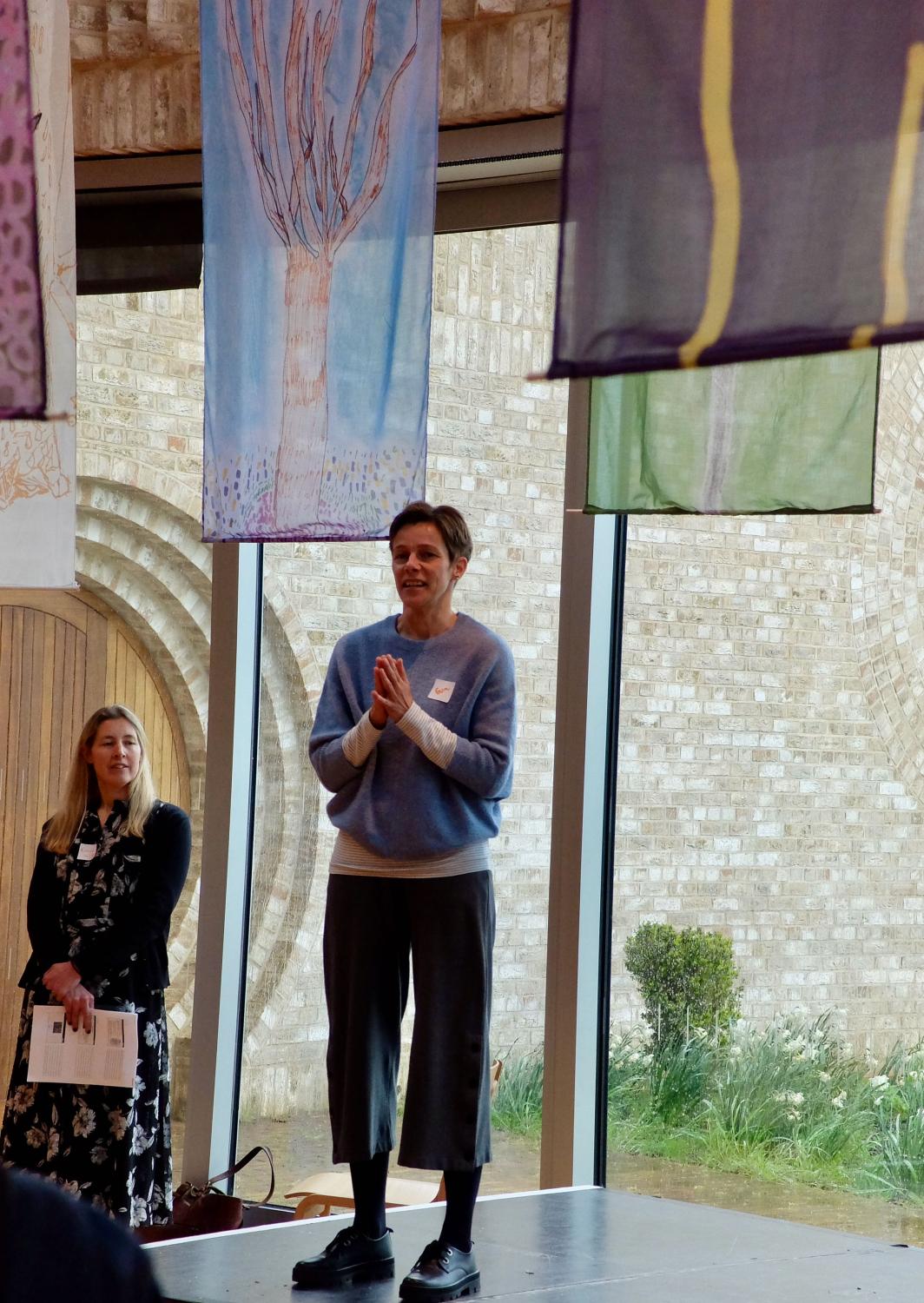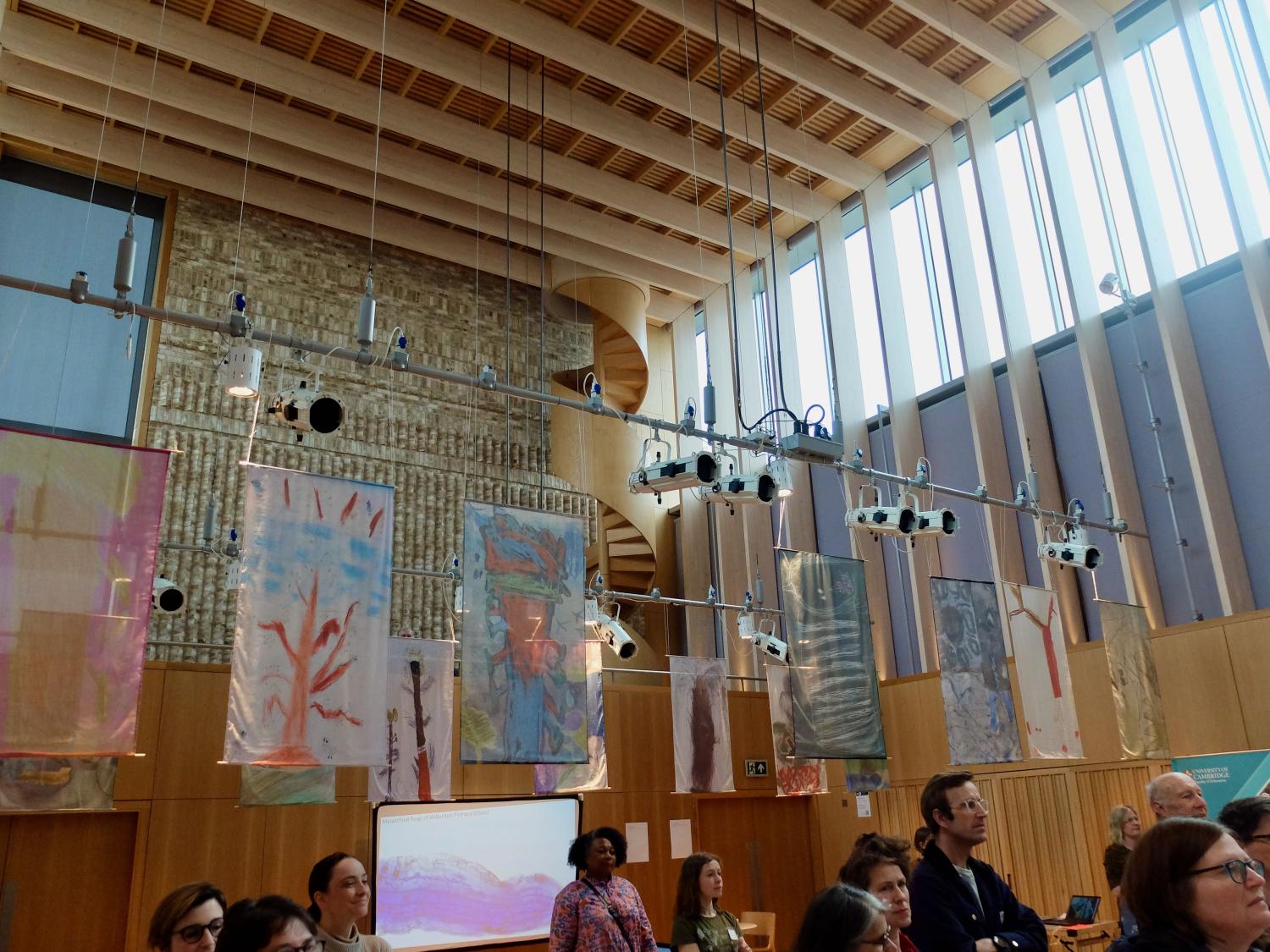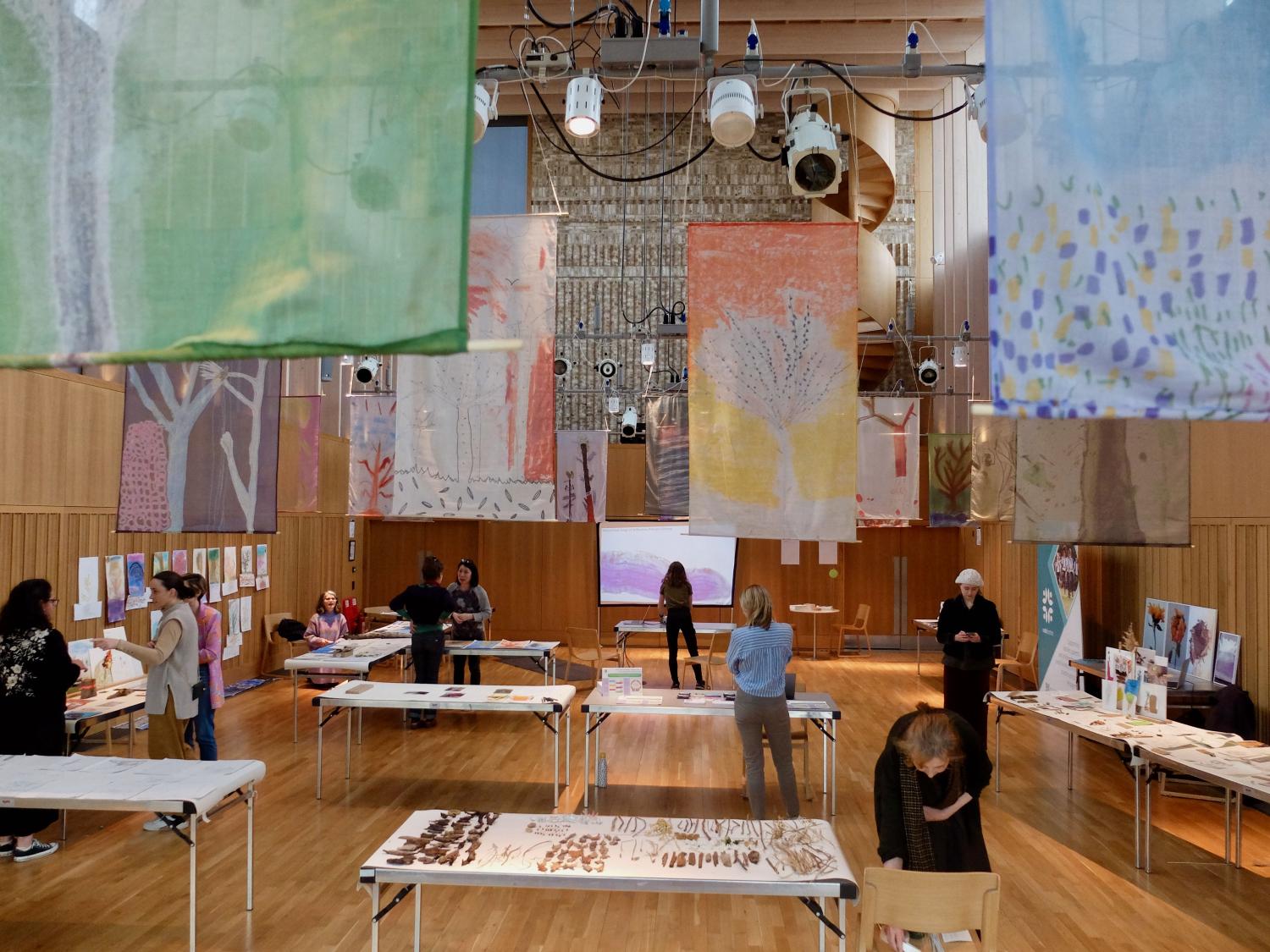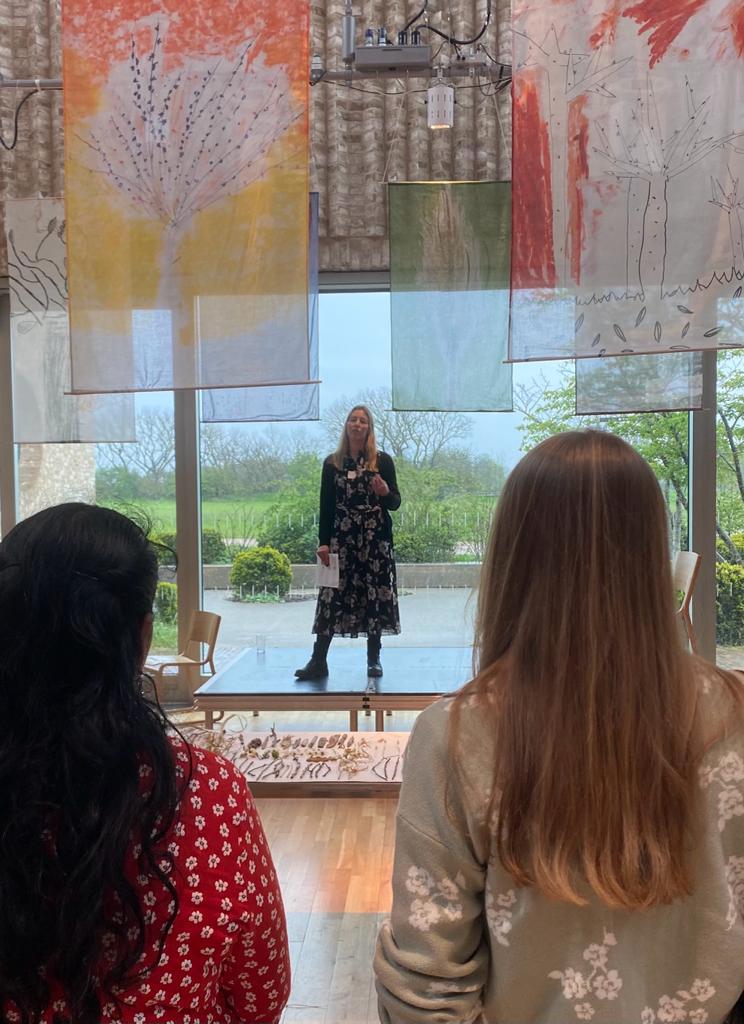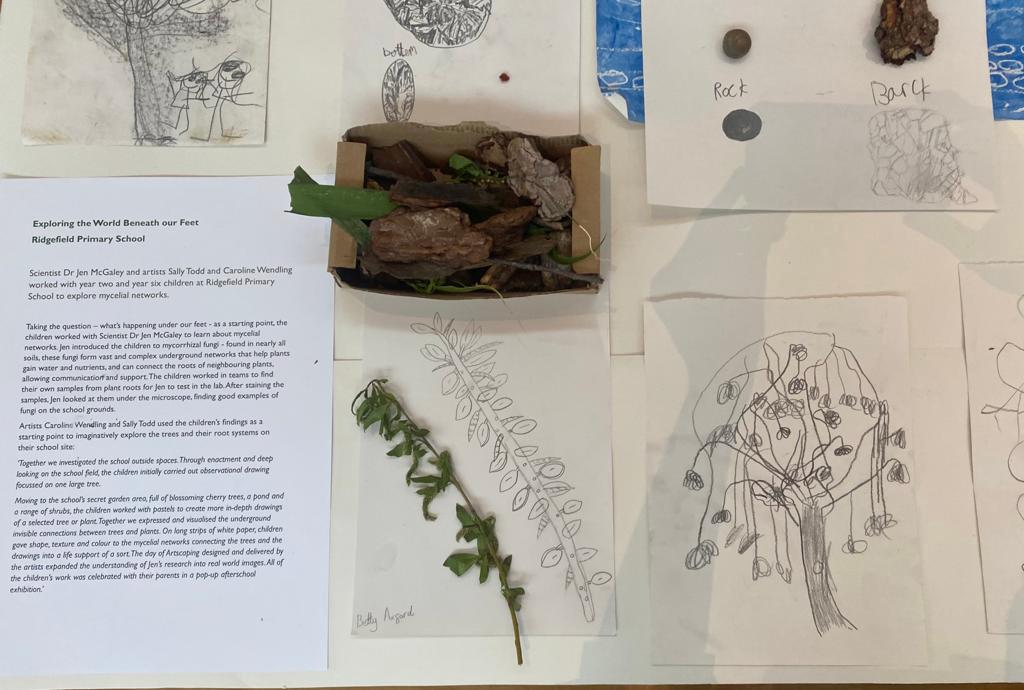‘This is the work’ is how our patron Robert Macfarlane summed up all he had heard at our event on 28 April to celebrate Amplifying Artscapers:
"Looking around this room and hearing about the everyday heroes that change lives in that slow, hard, day to day work – teachers, academics, parents, artists, scientists – this organisation and others like it are joining them, and they become greater in the sum of their meeting. The stories we’ve heard are about relations, of new joinings happening, of growth and goodness and justice emerging from that."
This special event at Storey’s Field Centre, Cambridge, brought together the achievements of a culmination of programmes developed with a growing network of schools and delivered in partnership with family therapy charity Cambridge Acorn Project, Fullscope, and with research partners from UCL and ARU.
We gathered to celebrate everyone who has supported CCI to facilitate more opportunities for children and young people across the county to have precious arts in nature experiences, and to share our growing evidence base that this work can be generative for good mental health. Through detailed pop-up displays created by the CCI artists we shared artworks made in bespoke school projects, and were joined by project partners, including scientist Dr Jen McGaley from Crop Science Centre, who has collaborated with CCI on mycelium inspired projects and colleagues from the new Rudd Centre at the Unviersity of Cambridge Faculty of Education. Talks from our academic and school partners championed the importance of Artscaper practice.
Dr Nicola Walshe shared her research into the impact of the practice of Artscaping on children and young people, discussing findings from Eco-Capabilities and Branching Out. We then heard from David Aston, Headteacher at Wilburton C of E Primary School and Paul Jones, Headteacher at Hampton College Primary, Peterborough, who shared stories of the impact this work had had within their settings. Both Headteachers discussed Artscaping being used as a methodology to intervene early to support children’s wellbeing, so that children that often sit slightly below the threshold for external mental health interventions could be supported to prevent issues escalating.

